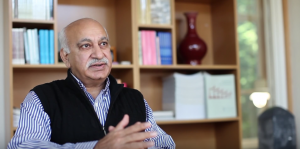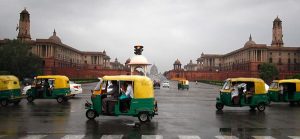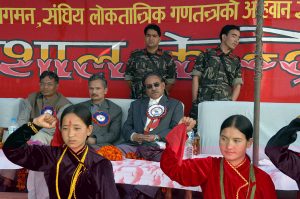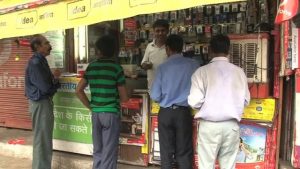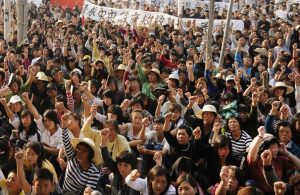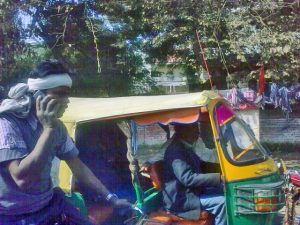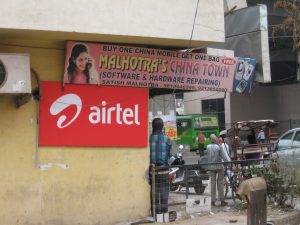India-Bangladesh Border Issue Unresolved
Memo #231 By Glen Hamburg – glenhamburg [at] gmail.com An international enclave is a piece of one state’s sovereign territory entirely surrounded by the territory of just one other state. Nearly 200 such land-locked islands lie along India’s border with northern Bangladesh. The obscure remnants of eighteenth century tax arrangements, these enclaves (chhitmahals in Bengali, […]
India: Problems and Promise (Video Interview with M.J. Akbar)
Modern India, which emerged out of British colonial rule in 1947 bloodied but unbowed by partition, had two massive challenges: the protection of its unity, and the elimination of poverty. More than six decades later, after surviving serious insurrections both in its North East and North West, India has largely resolved the threat from sectarian secessionism. But it still struggles under the weight of one third of the world’s poor. In 1947 this poverty was stark: in the last years of British rule, an estimated three million died of famine in Bengal alone. Such horrors are a thing of the past, but the tragedy of under-nourishment and subsistence-level existence remains a reality for 30% of the population.
Amid Concern about Women’s Safety, New Delhi Seeks Female Auto-rickshaw Drivers
The gang rape of a young woman in a bus in New Delhi last December sparked a national debate about women’s safety on India’s public transport systems. The New Delhi Transport Department responded by reserving 1,000 corporate auto-rickshaw permits for female drivers in the hope of making autos safer for female passengers.
Nepal Communications Shutdown: A Factor in Monarchy’s Demise?
Communication in the mountainous country of Nepal has always been difficult, until the advent of the mobile phones. Of the country’s 28.5 million residents, 46% used mobile phones in 2011, a 61% increase from the year before. So what would happen if the government decided to shut down phone service?
Elections, Illiberal Politics & Sectarianism in Pakistan: Pogroms against Hazara Shia
Pakistan will hold national elections in May 2013, marking the first time a civilian government completes a full five-year legal term. No small achievement for a nation that since 1947 has been marked by military coups and weak civilian rule. There are reasons to feel encouraged: constitutional reform promoting more balanced center-provincial institutional and political architectures, a media operating with fewer restrictions, and an increasingly independent judiciary all point toward the possibility of genuine consolidation of democracy. But the path ahead is challenging. The resurgence of sectarian violence and an electoral alliance between a key national party and sectarian militants points to a new dynamic.
Bureaucratic Red Tape Chokes Free Markets in India
India auctioned 3G licenses for USD $14.78 billion in 2010, a bonanza for a government staring at a large fiscal deficit and trying to promote inclusive growth through a host of populist social schemes. With new telecom auctions scheduled soon, the government hopes to generate more money to pare its fiscal deficit, and bolster its reformist credentials to foreign and domestic investors.
Collective Protests in China and India: Unexpected Similarity?
Collective protests against corruption and land grabs are widespread in both China and India. The official Chinese Academy of Social Sciences reported that the government spent $110 billion on containing these and related popular protests in 2011, more than the defense budget. Many argue that disruptive protests erupt because there are no effective institutional channels, such as the judiciary, for expressing grievances in China. However, in neighboring India, the world’s biggest democracy where such channels do exist, people similarly express their discontent through disruptive protests. Though not yet systematically counted, disruptions, both violent and non-violent, are an essential characteristic of Indian democracy.
Pocket Social Networking in India – SMS GupShup Expands
Memo #190 – The communication revolution has spread to small towns and even villages in India through a Twitter-like Small Message Service (SMS) social marketing networking alternative called GupShup. The low-cost text messaging service for phone, web, or mobile communication facilitates “pocket social networking” for people without smart phones. It is estimated to currently process two billion messages per month in India, compared to 480 million a year ago.
Why Technology Needs People: Gold, Phones, and Bicycles
Memo # 177 – “We treated our precinct captains like gold,” wrote David Plouffe, an architect of President Obama’s 2008 US election campaign. “The challenge” lay in “marrying digital technology and strategy with a strong grassroots campaign.”
Plouffe’s insights had been anticipated a year earlier in an election in Uttar Pradesh, India’s largest state, where a party led by a Dalit (former untouchable) woman won unexpectedly. And the story about the centrality of technology and people came full circle early in 2012 when Uttar Pradesh voted to throw out the incumbent government.
China Crucial to India’s Mobile Revolution
Memo #172 – India entered the elite global club of $1 trillion-plus (USD) economies in the last decade accompanied by explosive growth in domestic mobile phone users. India had the second largest population of mobile phone users as of 2010, an astounding leap from their modest rank of 34th ten years earlier.

